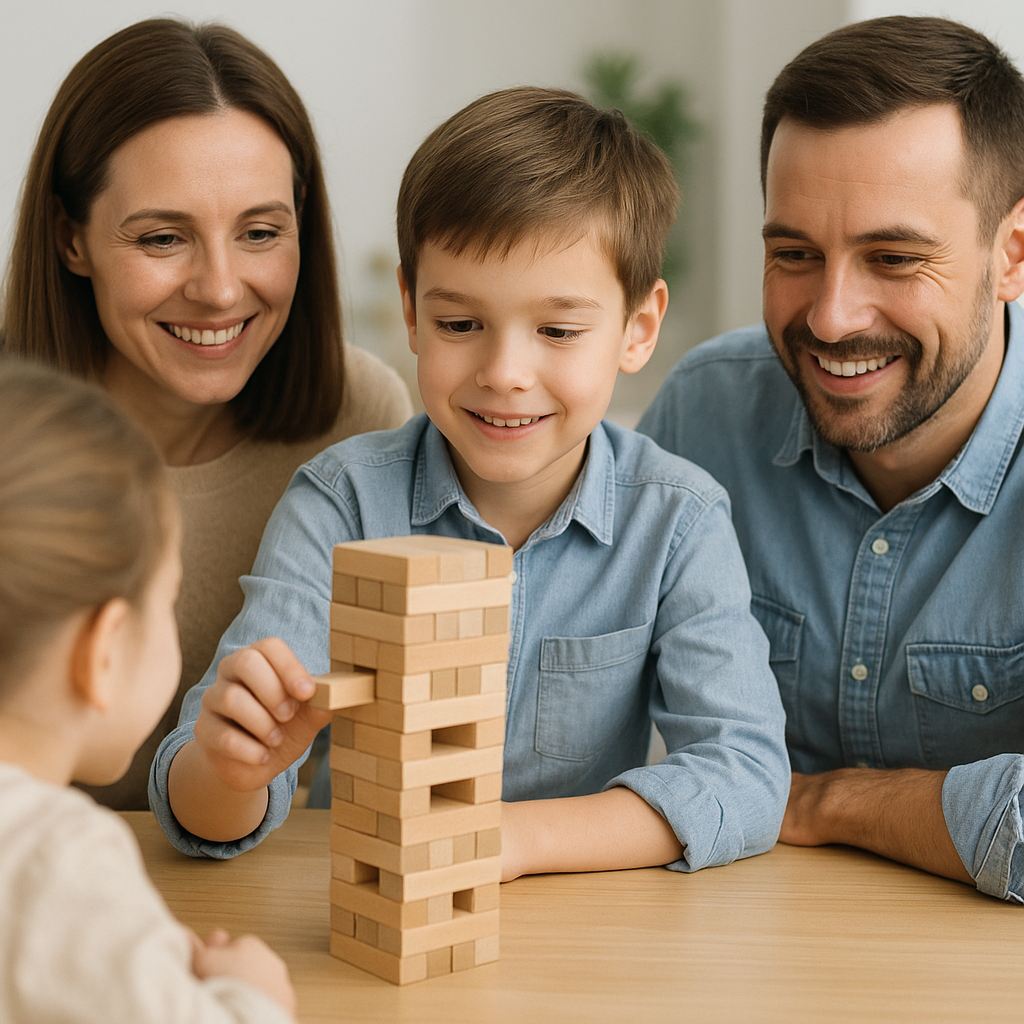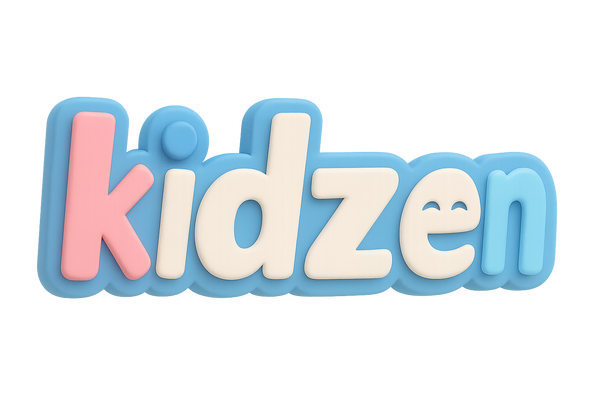
Stacking Skills & Strengthening Bonds: The Impact of Playing Jenga with Family on a Child's Development
Share
In a world saturated with fast-paced video games and short attention spans, the simple game of Jenga may seem almost quaint. But don’t let its wooden blocks fool you—Jenga is a powerful tool for developing a child’s emotional, cognitive, and social skills, especially when played with family.
Let’s explore how this timeless game helps shape young minds and hearts—block by block.
🧠 Cognitive Benefits: Focus, Planning, and Precision
At its core, Jenga is a game of focus and strategy. According to a study published in Cognitive Development (Rao & Georgiou, 2021), structured, rule-based games like Jenga improve executive functioning in children, especially skills like:
-
Working memory
-
Inhibitory control
-
Task planning
-
Fine motor coordination
As children concentrate on which block to remove or where to place it, they engage in problem-solving and risk assessment—core components of early STEM (science, technology, engineering, math) learning.
👪 Social & Emotional Impact of Playing with Family
When Jenga is played as a family, its benefits multiply. Research from The American Journal of Play (2020) found that board games involving physical interaction and shared attention improve emotional regulation and social bonding (Zosh et al., 2020). The turn-taking, laughter, and gentle competition inherent in Jenga support emotional skills such as:
-
Managing anticipation or frustration
-
Celebrating others’ success
-
Practicing patience and empathy
-
Building self-confidence through mastery
The presence of parents during such games adds an extra layer of security and joy, reinforcing secure attachment and positive reinforcement loops that shape lifelong emotional stability.
🧩 Jenga’s Role in Developmental Psychology
In a study conducted by the National Institute for Play, researchers found that family playtime promotes neural connectivity and resilience in children, especially when the play involves touch, timing, and tension—three factors found in Jenga. The physical act of removing a block gently and precisely requires:
-
Hand-eye coordination
-
Controlled breathing
-
Social awareness (e.g. “Is my move fair?” “How are others reacting?”)
These experiences contribute to the development of emotional intelligence (EQ)—a crucial predictor of long-term well-being and success (Goleman, 2006).
🏠 Why Jenga Is Uniquely Family-Friendly
| Feature | Child Development Benefit |
|---|---|
| Simple Rules | Easily accessible for different age groups |
| Turn-Based Gameplay | Teaches patience and fairness |
| Physical Components | Enhances motor control and spatial awareness |
| Shared Risk and Outcome | Fosters empathy, resilience, and laughter |
| No Language Dependence | Great for multilingual households |
Because the game has no screen, no batteries, and no scripted outcomes, it allows children to stay grounded in the present moment, a valuable counterbalance to our often overstimulating digital world.
💡 Pro Tips for Meaningful Jenga Play
-
Play face-to-face at a table with no distractions.
-
Talk about moves and emotions (“Were you nervous?” “That was tricky!”).
-
Let kids lead the game sometimes to boost confidence.
-
Celebrate effort, not just winning.
-
Add storytelling prompts ("Pretend each block is a wish, what is yours?") for creativity.
🌟 Final Thoughts: A Tower of Connection
Jenga may be simple, but its benefits stack high. Through laughter, focused silence, and the occasional crash of tumbling blocks, children learn that challenge is part of growth and that connection is built one small moment at a time.
So next time you're gathered at home, skip the screen. Stack some blocks. And build something truly lasting—together.
